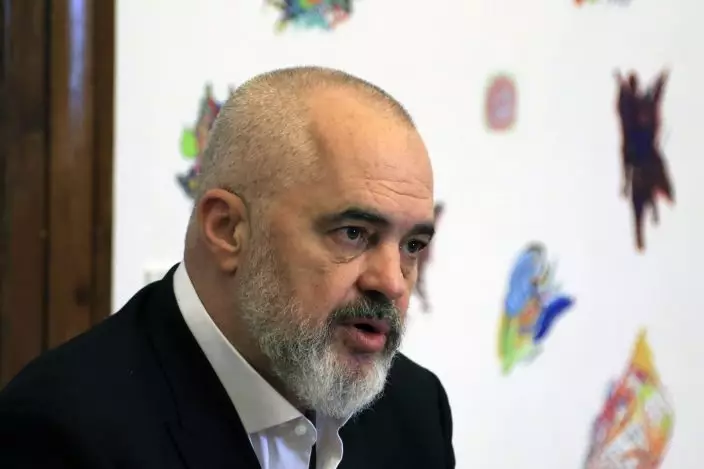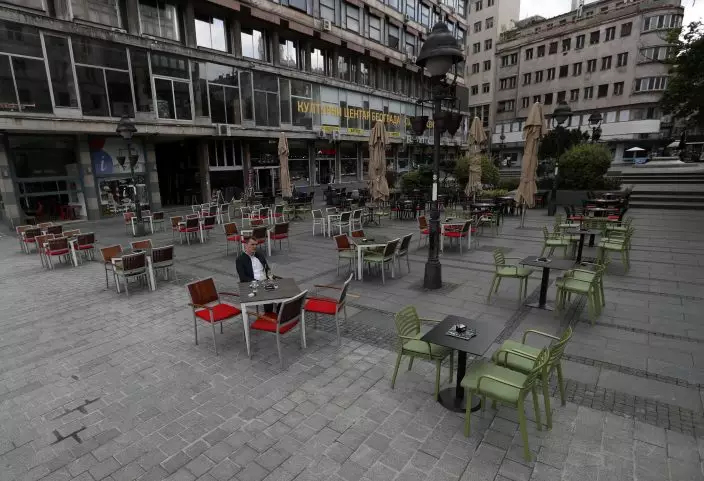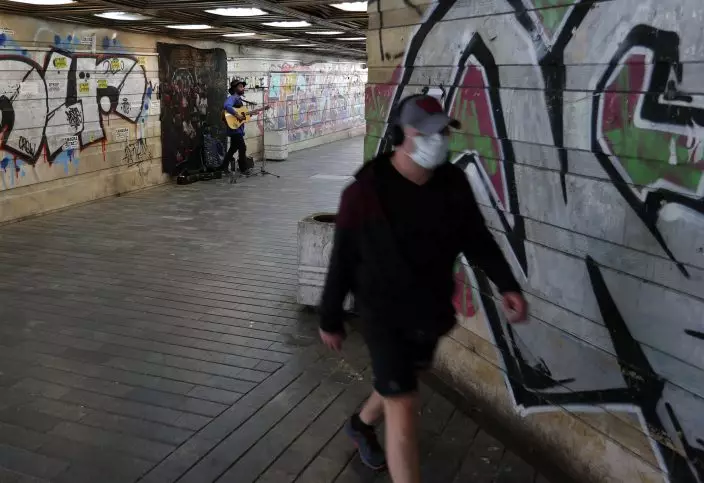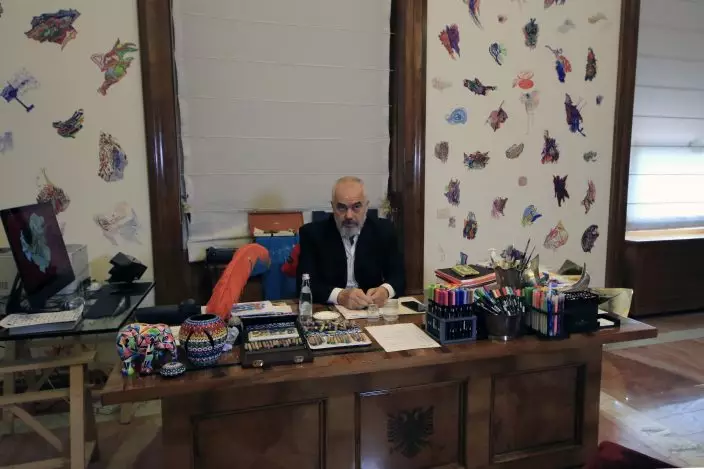European Union leaders sought Wednesday to reassure their counterparts from six Balkans countries that the bloc remains the volatile region's most important partner, particularly as the coronavirus hits their societies, ravaging health care systems and economies.
Amid delays over the start of EU membership talks for Albania and North Macedonia, lingering tensions between Serbia and its former territory of Kosovo, and a perception that the EU was slow to help its Balkans partners cope with the virus, concern has mounted that Russia and China might take advantage.
The summit had been billed as a highly symbolic event to be held in Croatia, which became an EU-Balkans success story when it joined the bloc in 2013. The country currently holds the bloc’s rotating presidency until June 30. Now, the summit will be held by video conference.

Albania's Prime Minister Edi Rama speaks during an interview with the Associated Press in Tirana, Wednesday, May 6, 2020. Western Balkan countries are optimistic in their European path, also looking forward to the bloc's post-pandemic assistance to cope with their increased economic difficulties. (AP PhotoHektor Pustina)
Joining the 27 EU leaders will be the heads of countries called the “Balkan six:” Albania, Bosnia-Herzegovina, Kosovo, Montenegro, North Macedonia and Serbia.
With the coronavirus the focus of concern, any official talks about EU enlargement are now off the table. Instead, the EU will want to herald a “new phase of close cooperation” in light of the coronavirus, according to an organizational note released in Brussels.
An EU economic support package planned before the crisis is gone too, but European leaders will want to focus on 3.3 billion euros ($3.6 billion) in emergency coronavirus funding that it previously granted the six as it looks to burnish its credentials as a far more worthy partner to the region than Russia.

A customer seats outside a cafe with tables to respect the two meters social distancing because of the coronavirus pandemic in Belgrade, Serbia, Monday, May 4, 2020. The Balkan country has started easing the measures, but experts have warned that the situation is still volatile. (AP PhotoDarko Vojinovic)
The money is aimed at supporting their overburdened health services, ensuring the delivery of supplies like protective equipment, masks and ventilators, and at bolstering their economies and to speed up recovery efforts. Emergency aid is also available for vulnerable refugees and migrants in the region.
The Balkans six will be invited to affirm their European ambitions and recommit to democratic, political and economic reforms.
In a written statement to The Associated Press, North Macedonia’s Prime minister Oliver Spasovski acknowledged that that the coronavirus has raised “unforeseen challenges” for all.

A man wearing face mask to protect against coroavirus, walks through an underground passage in Belgrade, Serbia, Tuesday, May 5, 2020. Residents of the Serbian capital have flocked to outdoor cafes and restaurants as they enjoyed further easing of restrictions implemented nearly two months ago to combat the spread of coronavirus. Serbia's President Aleksandar Vucic has said the formal lifting of a state of emergency imposed in mid-March will take place later this week. (AP PhotoDarko Vojinovic)
“But it also brought something positive - it clearly showed that the European continent has a common destiny. The way we are dealing with the epidemic has shown that we share the same administrative, culture and other practices,” he wrote.
The countries of the region are at different stages of European integration. Serbia and Montenegro are holding pre-membership negotiations while Albania and North Macedonia have been given the green light to launch them, although still without an exact start date. Bosnia-Herzegovina and Kosovo have started only the first step in the process.
“I strongly believe that we are in a better place today in our relations with the European Union,” Albanian Prime Minister Edi Rama said.

Albania's Prime Minister Edi Rama speaks during an interview with the Associated Press in Tirana, Wednesday, May 6, 2020. Western Balkan countries are optimistic in their European path, also looking forward to the bloc's post-pandemic assistance to cope with their increased economic difficulties. (AP PhotoHektor Pustina)
Albania and North Macedonia were meant to begin accession talks last year, but French President Emmanuel Macron blocked the move and said he would continue to do so until the process for allowing countries into the EU had been reformed, particularly with Britain just leaving.
Macron did so despite warnings that further delays to the countries’ membership efforts could undermine stability in the region, and the fact that accession talks can take several years. North Macedonia’s leader reacted by stepping down and calling an early parliamentary election.
The European Commission later revised the accession process for both countries to respond to Macron’s objections and other reservations raised by the Netherlands. A date for the talks to start had been expected at this summit, until the coronavirus hit.
But Rama remains upbeat despite the fresh delay.
“We’re preparing all the setup for the negotiations and the date will come,” he said.


